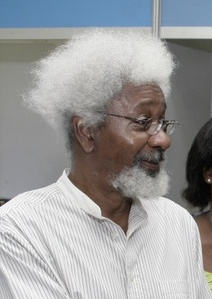Irreligion in Africa
 From Wikipedia - Reading time: 8 min
From Wikipedia - Reading time: 8 min
 | |
| Religion | |
|---|---|
| Irreligion (including atheism, physicalism, metaphysical naturalism, metaphysical logicism (logicalism), agnosticism, deism, skepticism, freethought/freethinker, secular humanism, ignosticism, nonbeliever, non-theist, rationalist) |
Irreligion in Africa, encompassing also atheism in Africa as well as agnosticism, secular humanism and general secularism, has been estimated at over tens of millions in various polls.[citation needed] While the predominant religions in Africa are Islam and Christianity, many groups and individuals still practice their traditional beliefs. Despite this the irreligious population is notable, especially in South Africa where 3.1% of the population describe themselves as irreligious, atheist or agnostic,[1] and in Botswana, where 7.1%[2] of the population describes themselves as non-religious.
History
[edit]Sources promoting irreligion in Africa have been dated to go back several millennia.[3] Other sources have noted that many African philosophies such as Ubuntu are rooted in a secular humanistic framework.[4] During the 1950s and 1960s, irreligion in Africa became increasingly widespread among the educated classes as communism, socialism and anti-colonial movements gained influence on the continent.
Demographics
[edit]The largest self-declared populations of the irreligious in Africa are found in Southern African countries such as South Africa, Mozambique, and Botswana. Irreligion in Ghana has also been the subject of some study.[5] There may be claims that irreligious people are also growing in North Africa, in particular, Ex-muslims, however there is no credible study to back this narrative up.
Trends
[edit]In tandem with the increase of irreligion around the world, the declared population of irreligionists in Africa has been noted to be on the rise.[6][7]
Notable irreligious people in Africa
[edit]This section needs additional citations for verification. (March 2021) |

- Aliaa Magda Elmahdy, Egyptian feminist.
- Barack Obama Sr., Kenyan economist and father of U.S. President Barack Obama.
- Chris Hani, South African anti apartheid activist and General Secretary of the South African Communist Party.
- Govan Mbeki, South African anti apartheid activist and father of President of South Africa Thabo Mbeki.
- Joe Slovo, South African anti apartheid activist and General Secretary of the South African Communist Party.
- Kareem Amer, Egyptian blogger and political activist.
- Kingunge Ngombale–Mwiru, veteran Tanzanian politician.
- Leo Igwe, Nigerian human rights activist.
- Maikel Nabil Sanad, Egyptian blogger and political activist.
- Nadine Gordimer, ANC activist and writer.
- Rachid Boudjedra, Algerian writer and novelist.
- Ronnie Kasrils, South African anti-apartheid activist.
- Samora Machel, socialist leader and President of Mozambique.
- Seun Kuti, Nigerian musician.[8]
- Tai Solarin, Nigerian writer and educator.[9]
- Sherif Gaber Egyptian political activist and blogger.
- Wole Soyinka, Nigerian writer and Nobel Prize winner.[10]
- Kateb Yacine, Algerian novelist and playwright.
- Zackie Achmat, South African anti-apartheid activist.
- Zineb El Rhazoui, Moroccan journalist and human rights activist.
See also
[edit]References
[edit]- ^ https://census.statssa.gov.za/assets/documents/2022/P03014_Census_2022_Statistical_Release.pdf [bare URL PDF]
- ^ Statistics Botswana (2024-06-12). Fertility, Mortality, Migration and Religion. Retrieved 2025-05-25 – via YouTube.
- ^ M.B. Mat'e, The History of Freethinking in Ancient Egypt (1956), no. 3.
- ^ McGowan, D. (2013). Atheism For Dummies. Wiley. p. 161. ISBN 9781118509210.
- ^ ZUCKERMAN, P. (2009). Atheism and Secularity. ABC-CLIO. p. 75. ISBN 9780313351822.
- ^ "The rise of atheism in modern Kenya". Daily Nation. Retrieved 2013-07-05.
- ^ "Why We Don't Believe In God". The Star. Archived from the original on 2013-08-21. Retrieved 2013-08-23.
- ^ "I am happy I'm an atheist, says Seun Kuti - Vanguard News". Vanguardngr.com. 2013-07-29. Retrieved 2014-01-14.
- ^ "Tai Solarin: His Life, Ideas, and Accomplishments". Infidels.org. Retrieved 2010-11-17.
- ^ Wole Soyinka (2007). Climate of Fear: The Quest for Dignity in a Dehumanized World. Random House LLC. p. 119. ISBN 9780307430823.
I already had certain agnostic tendencies—which would later develop into outright atheistic convictions— so it was not that I believed in any kind of divine protection.
Further reading
[edit]- Phil Zuckerman, Atheism and Secularity (2009), p. 75, ISBN 9780313351822.
 KSF
KSF